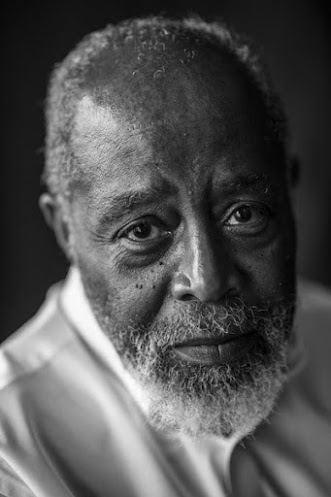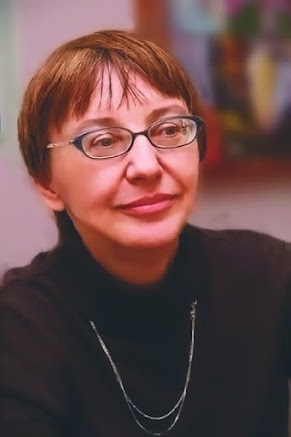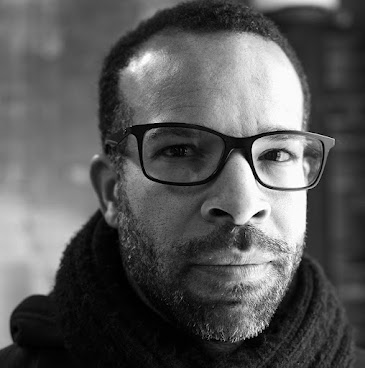Dream of No One but Myself, David Bradford
Brick Books, 2021
2022 Griffin Poetry Prize • Canadian Shortlist
interviewed by rob mclennan
The 2022 Griffin Poetry Prize will be announced on June 15, 2022.
David Bradford [photo credit: Sarah Bodri] is a poet, editor, and organizer based in
Tiohtià:ke (Montréal). He is the author of several chapbooks, including Nell
Zink is Damn Free (Blank Cheque Press, 2017) and The Plot (House
House Press, 2018). His work has appeared in The Capilano Review, The Tiny,
filling Station, The Fiddlehead, Carte Blanche, and
elsewhere. He holds an MFA from the University of Guelph and is a founding
editor of House House Press. Dream of No One but Myself is his first
book.
Dream of No One but
Myself is very much constructed as a book-length project,
writing around the live and loss of your father. What prompted you to tell the
story of your father, and that loss, through the form of the book-length poem,
or even poetry at all?
You know, I had a mind that, if I was going to come at this
flashpoint in my family history, in my family’s historical debris field, I was
gone really come at it, so as to only do it once. Because writing, iterating,
editing, presenting this book has been to learn a few things all over again:
you can just keep cycling back through the process of these kinds of family
histories, revelations, realizations. They stick, but the body forgets their
feeling a bit, can want them unlocked all again. So, if I was going to do this,
show the depth of the mess, I was going to dig deep enough to feel that maybe
the digging could never end and you had to just call it—the end, that is. The
openness of a hybrid, braided together bunch of coordinated, iterative forms
all somehow poetry gave me room to explore the levels and questions I felt I
needed to shape that kind of book.
So, an element of that I wanted to shape at the book level was sparked
and organized by the felt experience of the sick trick of the dead, abusive
parent: the way there were things about him I could only safely wade through,
accept, empathize with once he had passed. Things that leave me ready to let
the dead him back into my life but not the live him, were that an option. Basically,
the insights of this book required death, and their staying power depends on it.
With that in mind, I think this book nurtures a relationship with
haunting—a coming to terms tensioned by the impossibility, for me, of coming to
terms with him when there was still a person to come to terms with. And the
terms of that tension haunt themselves: the attempts below, the attempts above,
the attempts out over there, haunted by the attempts over here. The ectoplasm
spilling over from one form—one rip and cut and suture—to the next, to get
goofy about it. There’s an element of letting it all through, then channeling these
literally unspeakable tensions in the spectrum of ways all of this history is
encountered and re-encountered, going through those motions knowing where they
can’t go, to see where they can and can’t go, to put a reader through those
motions too. To take readers through a spectral, gestural record of channeling the
wake and drift of this personal, historical accrual, this urge to do some magic
on it.
The uncontainable nature of this kind of family histories that
comes back around and around, has no final answer, maybe just an end to the
questions—poetry gave me a lot of room to explore the impulses all that
entailed for me.
What do you think
the form of the poem allowed you to articulate that might not have been
possible had you worked the same material through the form of a memoir, or even
a novel?
The thing about poetry for me is mostly permission to encourage my
thinking to give in to the forces that give the genre its heft—the attention
and tension.
The family stuff in this book started as a hulking lyrical essay,
but I didn’t like any of the options before me for taking that work into a
nonfiction publishing space. It didn’t feel like nonfiction processes would get
me as far as I wanted to get with using up this material, going all in with the
mutual haunting, bidding that stuff goodbye. That initial lyrical essay form also felt too
editorialized for this irresolvability I was trying pattern, move on from,
document: the essay pulled all the emotional strings, it tried to get the words
right (even as it said it didn’t believe in the right words), and as is, it was
kind of unbearable. It took a while to put together, but it felt like
the surface, or the first layer.
So, turning to poetry—first with the idea of the soft erasures,
the grey-and-black versioning technique—got me to keep digging, keep layering
and re-arranging, keep growing the verbal and non-verbal gestures that left the
record of this material feeling just barely exhausted (I hope), and gave its
tattered, lossy fabric its due.
I guess my idea or ideal of poetry gave me the space to contain
and really go after the stakes of that effort in a way non-poetic forms didn’t
feel like they would.
How
important is sound on the page as you work? Do you feel there is anything lost
at all in sound or cadence through working on the page? What is the difference?
I think about the fraughtness of the
decision-making processes involved in holding this kind of family stuff, family
debt, family mess together—how much I ask readers to go through that process
with this book—and I think my intense attention to sound, and working that out
on the page over the last couple of decades, helped prepare me for that. Sound
is so important for me, but same as the fraughtness, you can at best lay out
and hedge for possible readings, give the reader some tools to work with in
sounding out these poems.
But no matter the tools—line breaks,
half rhymes, white space on the line, the careful aeration of erasures, the
propellent or halting use of sometimes jarring periods—something of what these
pieces sound like to me, or sound like coming from me, is always lost on the
page. The beauty in that is something is always gained, too: the way it sounds
to the reader, the decisions they’ll make in hearing these pieces out.
I guess that’s one big difference:
the reader’s in charge on the page. It makes me want to hear them read what
they hear. Because I can’t really sound that out myself.
Was there anything that writing through grief revealed
that you weren’t expecting? Are the poems in Dream of No One but Myself part
of a longer, ongoing process?
I think the text-book
nature of the abuse came for me a bit. Some of these things you take to
thinking about them as just “difficult” or “not good.” But calling them abuse
can take a minute, or at least it did for me and my mother, both individually
and together.
One embarrassing thing
about trauma, particularly amidst and in the aftermath of contexts where you’re
just going through the motions of it, is it’s true form sort of hides from you,
then reveals itself plainly. There were lots of those moments in the process of
writing this book.
A maybe even fleshier
thing that revealed itself, though: how little my mother and I understood—how
little we could understand, given our orientation to him—how few words we had,
and how little healthcare was truly available to my father in terms of what he
was dealing with mentally. A key part of the process for this book was asking
my mother to confirm certain details over and over again. Some of the ups and
downs that were challenging him emerged more clearly in those talks. And the
complete uselessness of the institutions at this disposal, same as at other
times in his life, also emerged more clearly, if unsurprisingly.
In terms of a longer,
ongoing process: I really, warmly, deeply hope the answer is no. I’ve done a
lot of thinking and growing out of the thoughts I laid out in for this book,
but in terms of writing, this feels like it’s it for me. The whole point was to
get to where it was done for me, even if, in a greater context, it might never be
done for me.
Have you been writing much in the way of poetry since Dream
of No One but Myself was completed? What have you been working on since?
For
better or worse, I jumped right in to the next thing when I completed my
penultimate draft of the book in spring 2018.
I
had the idea to do something less personal, maybe lighter. But that very
quickly turned into Bottom Rail on Top, poems about dominant Black and
white histories of Blackness in the antebellum South set against the day-to-day
of the personal present—my present—that mediates it.
It’s
a two-hander, in a sense: it brings together two strands of poetic sequences, popping
back and forth between the experience of learning about and arranging all of these
big and small Black histories and places and their echoes and contrasts in
comparison with my life, the way my body does and doesn’t carry, the way I do
and don’t want it to carry, the legacy of that past. It’s a project first built
on a lot of the conflation I saw at play in Black radical theory that’s had a
major impact on my work: the way a straight line is often drawn from slave
narratives to, say, the Harlem Renaissance and then to us now. And in a way, I
believe in that line. But I also believe that so much of my life—even amidst
the racism and mindfucks and creative rub of being this kind of body in this kind
of modern world—looks a lot like mastry, to borrow Kerry James
Marshall’s phrase. So many material itches, so many supply chains ending at my door,
so many platforms, so much modern self-making, so much funding, so much stuff, etc.
Or to put it another way a bit more couched in disparities among Black people
in the present, I need to acknowledge what it means that I’ve been called upon
to speak, sometimes on behalf of… And as Hortense Spillers and Fred Moten have
articulated crucially but too occasionally, that call means I’ve already become
estranged from some of conditions I’ve been called upon to articulate. The
problems of that estrangement, alongside some of the important echoes I
describe above, are things I wanted to explore and describe on the page. Among
a lot of other things to do with some of the ways Black folx formulate
Blackness for themselves outside of the monolithic.
So,
there’s a lot more I could say, but I worked on that a couple of years, then
worked on it some more with Diasporic theorist Michelle M. Wright, which was an
invaluable experience. And now I’m entering the editing stages with Cecily
Nicholson, thinking about a few things we might add to it. The book should be
out in fall of 2023.













